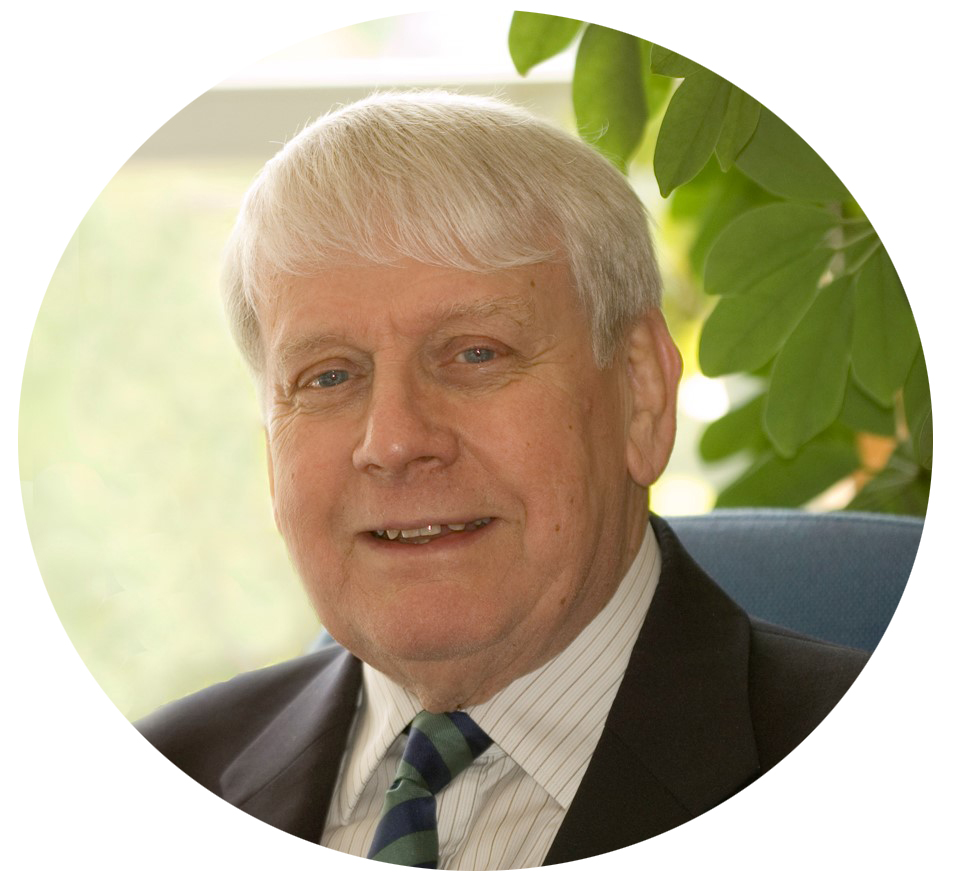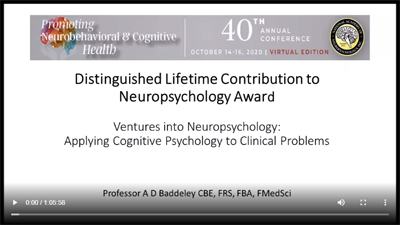Developing the Concept of Working Memory: The Role of Neuropsychology
 By Alan Baddeley, Ph.D.
By Alan Baddeley, Ph.D.
University of York
Abstract: The evolution of the concept of a multicomponent working memory is described with particular reference to the contribution from neuropsychology. Early evidence from patients with the classic amnesic syndrome, together with others showing the opposite deficit of impaired short-term but preserved long-term memory argued strongly for a separation between long- and short-term memory systems. Simulation of the short-term deficit in healthy participants using a dual task approach suggested the need to assume a three component system serving as a multi-purpose working memory comprising an overall attentional control system, the Central Executive, aided by separable temporary buffer stores for phonological and visuospatial information. An account is then given of the way in which evidence from patients was combined with the study of healthy participants to test and expand the model over subsequent years. This led to the need to propose a fourth component, the Episodic Buffer, a system that combines information from multiple sources and makes it accessible to conscious awareness. I conclude with a brief account of how the multicomponent approach resembles and differs from that of other current models of working memory.
Read Archives of Clinical Neuropsychology Article
View 2020 Distinguished Lifetime Contribution to Neuropsychology Award Presentation From Alan Baddeley, Ph.D.
Ventures into Neuropsychology: Applying Cognitive Psychology to Clinical Problems
Now Available for Member Viewing
Clinical observations often drive research questions. Research findings can improve clinical practice. Relatedly, clinical needs can motivate new research pursuits. In this talk I will review a number of studies from my lab, both on people with multiple sclerosis (MS) and those with sports-related concussion, which illustrate the interchange between research and clinical practice. In our MS work, we started with the clinical observation that depression and cognitive dysfunction appeared common in MS. I will review some studies in which we empirically demonstrated a relationship between these two variables after we gained a better understanding of how neurovegetative depression symptoms were confounded with MS symptoms; these and other findings suggested that treatment of depression, especially by modifying coping strategies, might lead to improved cognitive functioning. In our sports concussion work, we had an acute clinical need to be able to make evidence-based decisions about return-to-play in athletes who had not had baseline testing. This clinical need led to our development of an algorithm, using base rates of impairment, to identify athletes who were not ready to return-to-play. I will review this algorithm and some evidence in support of it. I will also discuss our development of a method for identifying athletes at risk for depression following concussion by using aspects of an already widely-used measure in sports concussion management. Other clinical translational issues will be addressed. I will conclude by emphasizing the need to think about clinical translation in research so that we can continually improve clinical care.

Alan Baddeley, Ph.D.
Alan Baddeley graduated in Psychology from University College London and following a Master's degree at Princeton completed a Ph.D. in Cambridge at the Medical Research Council Applied Psychology Unit, an early focus of cognitive psychology directed by Donald Broadbent. After nine Years he moved to the University of Sussex, then to a Chair at the University of Stirling before returning to the Cambridge APU succeeding Broadbent as Director. He added neuropsychology as a major part of the Unit's remit, much of it conducted through a wide and fruitful range of clinical collaborations. After 20 years he moved to the University of Bristol and later to his current post at the University of York. He is best known for the creation with Graham Hitch of a multicomponent model of working memory but has had a continuing interest in memory more generally, much of it stimulated by neuropsychological collaborations. He is a Fellow of the Royal Society, the British Academy, the Academy of Medical Sciences and of American Academy of Arts and Sciences.